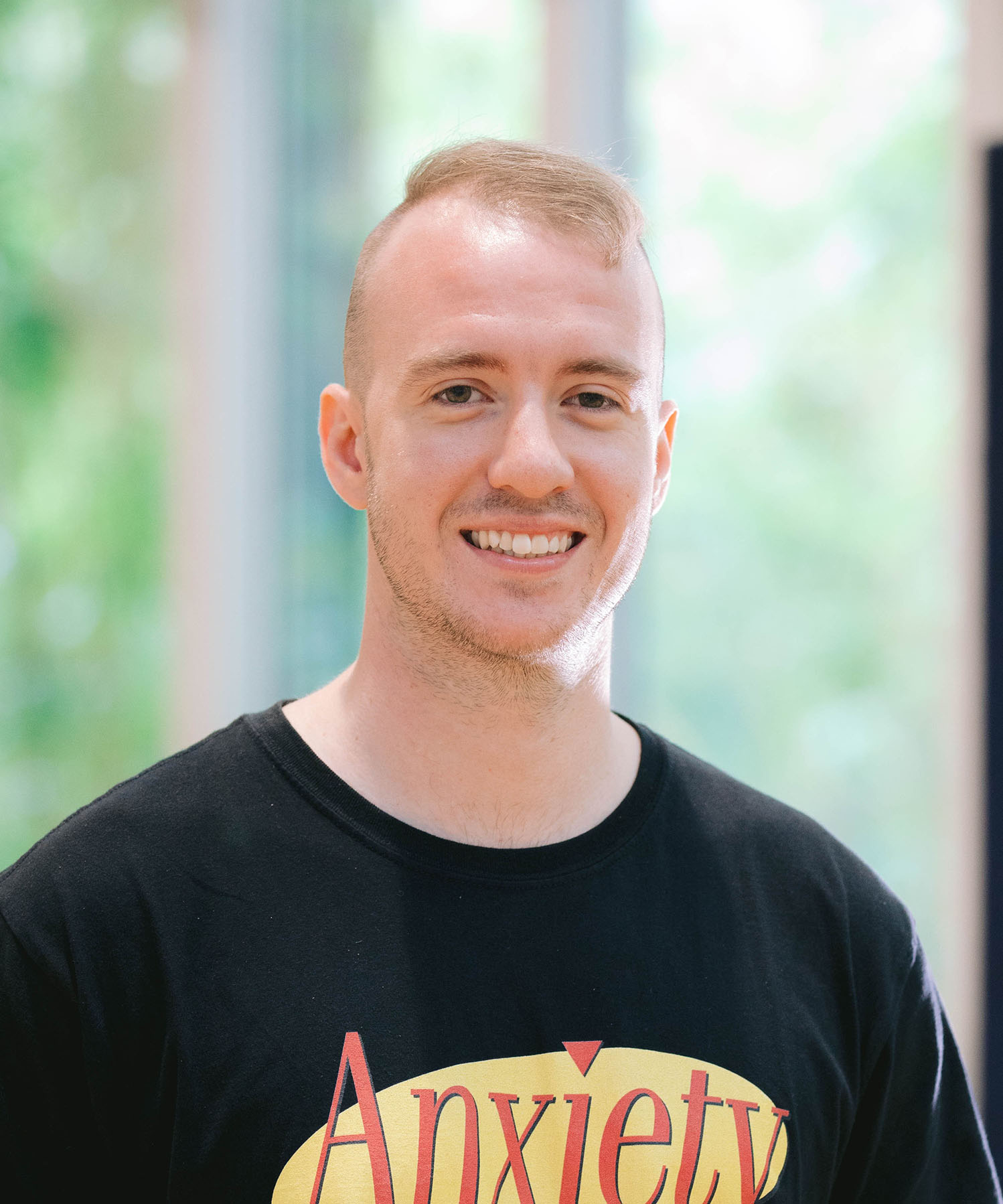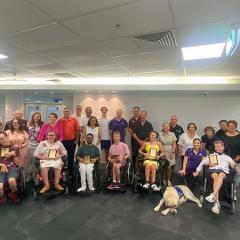 Each month we shine the spotlight on a HDR (Higher Degree by Research) student within the School of Human Movement and Nutrition Sciences.
Each month we shine the spotlight on a HDR (Higher Degree by Research) student within the School of Human Movement and Nutrition Sciences.
This month we caught up with PhD Candidate, Oliver Canfell.
What inspired you to undertake a PhD?
It was a lightbulb moment at my old retail job – I served a child with obesity and her family and thought “What if we could predict obesity to try and prevent it?” I took the idea to my lecturer Dr Jacki Walker and a month later I’d submitted an application!
What are your key research interests?
Prediction models and using them to improve patient care. I think it’s just fascinating – the idea that you can predict disease. The hardest concept to understand was that it’s easy to predict disease (my 3am statistics slogs at uni beg to differ) – it’s much harder to use prediction in practice to actually prevent disease. That’s a big research interest now – there’s a whole field of science dedicated solely to ‘implementation’. It’s great to develop something, but it’s useless if no one uses it!
What is your PhD research project about?
I developed and validated i-PATHWAY – a digital tool that can accurately predict childhood obesity (at age 9 years) using a handful of simple risk factors collected at age 1 year. We then explored if health professionals and parents were accepting of the idea to predict childhood obesity in healthcare. We’re now looking at enablers and barriers in the health system to implement i-PATHWAY into routine clinical practice.
What do you enjoy most about being a PhD student?
The freedom is truly luxurious. The freedom to research your passion, design your days and weeks around your needs, de-stress at the gym with other PhD students and to connect with researchers across the world along the way. The freedom to spontaneously speed home for a tactical nap is also highly enjoyable.
What is one piece of advice you would give to someone thinking about studying a PhD?
Find a topic that bothers you, upsets you, and keeps you awake at night. A topic that itches at you to do something about it. You’ll need this drive to get you through the inevitable 3 rollercoaster years of pitfalls, triumphs and just sheer emotion.
What three words would you use to describe the life of a PhD student?
Turbulent. Rewarding. Caffeinated.
What do you like to do in your spare time when you are not working on your PhD?
Spare time goals consist of petting many dogs, seeing mates who are NOT doing a PhD, getting lost in the abyss of a brilliant show, cooking (I’ve been cheating with Hello Fresh recently but it’s a genuine lifesaver) and always evaluating new possibilities for desk plants.
What are three words your fellow PhD students would use to describe you?
“Witty, humble, hard-working” – Chloe Salisbury, 2020. I realise the sample size of n=1 is slightly biased.
Where do you see yourself in 10 years?
I think the dial is finally shifting towards disease prevention, rather than treatment. I’d love to just have the luxury and privilege, as I have for the past 3 years, to be researching and implementing novel healthcare solutions for the world’s most wicked problems. If it’s cold, mountainous and not very humid wherever that is, I’ll be very happy.



